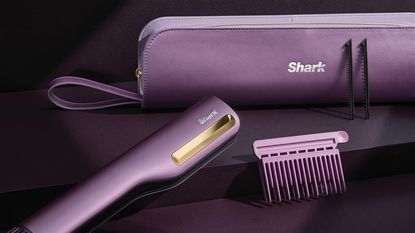Wellness
The latest Wellness breaking news, comment, reviews and features from the experts at T3
Explore Wellness
-

Best cheap mattress deals for February 2026: shop sales from Emma, Simba, OTTY and more
Need to upgrade your sleep setup? Check out the best cheap mattress deals to shop now
By Bethan Morgan Last updated
-

Nectar mattress sales, deals and discount codes for February 2026
Looking for a Nectar mattress deal, discount code or freebie offer? Step this way...
By Bethan Morgan Last updated
-

Eve mattress sales, deals and discount codes for February 2026
Looking for an Eve deal or sale? Now is the time to shop, with up to 60% off & price drops on the whole range
By Bethan Morgan Last updated
-

Emma mattress sales, deals and discount codes for February 2026
Looking for an Emma mattress deal? Find all the best Emma sales, deals and discount codes in this guide...
By Bethan Morgan Last updated
-

DreamCloud sales, deals and discount codes for February 2026
After a DreamCloud deal or discount code for this month? We've found the best discounts for you, in both the UK and US
By Bethan Morgan Last updated
-

Brook + Wilde sales, deals and discount codes for February 2026
Find the best Brook + Wilde sales and deals for money off your next mattress and sleep accessory
By Bethan Morgan Last updated
-

Valentine’s Day 2026: 30 last minute fragrances gifts for men and women
T3’s favourite Valentine’s Day fragrances to buy for him or her
By Bethan Morgan Published
-

Feeling the chill? These 3 electric blankets are cheaper than ever and will keep you toasty warm
Get up to 56% off these top rated electric blankets
By Bethan Morgan Published
-

NextSense debuts ‘world’s first’ wireless EEG sleep earbuds that measure brain activity to help you sleep
These sleep earbuds “go beyond passive monitoring to actively improve sleep”
By Bethan Morgan Published
-

Should you sleep in headphones? Audio expert gives their verdict
3 hidden dangers to sleeping in headphones and what to do instead
By Bethan Morgan Published
-
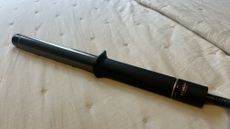
Revamp Effortless Curls Extra-Long Ceramic Tong review: an affordable curler that outperforms its price tag
Find out why this has quickly become one of my favourite hair stylers
By Lizzie Wilmot Published
-

Can regular yoga improve your sleep quality? I talked to a sleep expert to find out
Yoga has been shown to improve sleep quality but what is it about the practice that means we get a better night’s rest?
By Kat Bayly Published
-

I’m a yoga teacher and I swear by these 3 hacks for a productive day
Add these three things into your morning routine to start your day from a calm place
By Kat Bayly Published
-

BIC’s new 2-in-1 shaver is precise, affordable and so much more than a disposable shave
BIC debuts first-ever 2-in-1 trimmer and shaver
By Bethan Morgan Published
-
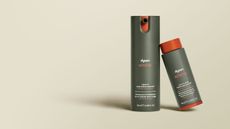
Dyson's first-ever scalp serum has arrived – here's why it's my favourite formulation so far
Dyson Amino is a leave-in bubble treatment focused on scalp health
By Lizzie Wilmot Published
-

9 best men’s fragrance launches from January 2026 – spicy, soft scents you should know about
From Valentino to Givenchy, here’s 10 fragrances from January 2026 to look out for
By Bethan Morgan Published
-

Best memory foam mattress 2026: cosy foam support for a great night's sleep
Find the best memory foam mattress that moulds to your body for better sleep
By Bethan Morgan Last updated
-

Can’t stop snoring? These 3 everyday habits could be making it worse, says sleep expert
Improve your sleep and stop your snoring with these quick tips
By Bethan Morgan Published
-
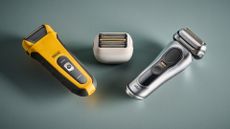
Best electric shaver 2026: top grooming options from Braun, Philips and more
Reduce stubble to rubble with the best electric shavers from Braun, Philips and other brands
By Lizzie Wilmot Last updated
-

Best women's perfumes and fragrances 2026: hit the right notes
Find the best women's perfumes, from sweet and decadent to exotic and green
By Bethan Morgan Last updated
-

Best cooling mattress 2026: drop your temperature for a better night's sleep
Banish night sweats with the best cooling mattresses and mattress cooling pads, designed to counteract heat retention
By Bethan Morgan Last updated
-

Bon Charge Red Light Toothbrush review: best oral care innovation in years or money-grabbing gimmick?
Does exposing your gums to red light therapy while you brush really reduce inflammation?
By Joanna Ebsworth Published
-

Scooms Body Temperature Regulating Luxury Duvet review: a top winter sleep upgrade
Warm cosy comfort that also keeps you cool? Meet the Scooms Body Temperature Regulating Luxury Duvet
By Lucy Miller Published
-
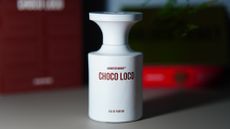
I tested Born to Stand Out Choco Loco – and I've never wanted to eat myself more
Ever wanted to smell like the most decadent hot chocolate? Now you can
By Sam Cross Published
-

5 simple ways to boost your health this January and stay motivated
It's no surprise that a lot of people are starting to feel their New Year motivation slip
By Lizzie Wilmot Published
-

What mattresses do Olympians sleep on? These Dreams mattresses are Team GB-approved and great for recovery
Dreams continues its Team GB and ParalympicsGB partnership with new mattress range
By Bethan Morgan Published
-

Back to work yoga – 5 yoga poses that relieve tension from a day of sitting
Get your body moving with these yoga postures designed to release the hamstrings, hips, shoulders and lower back
By Kat Bayly Published
-

This every day shower essential is dirtier than your toilet – here’s how to keep it clean
You’ll be surprised by how dirty this bathroom essential really is…
By Bethan Morgan Published
-

This bamboo bedding transformed my sleep – now I don't want to go back to cotton
From scepticism to silky nights: my two month test of Pretty You London's bamboo bedding delivered cooler sleep, fresher sheets and feeling of luxury
By Tom May Published
